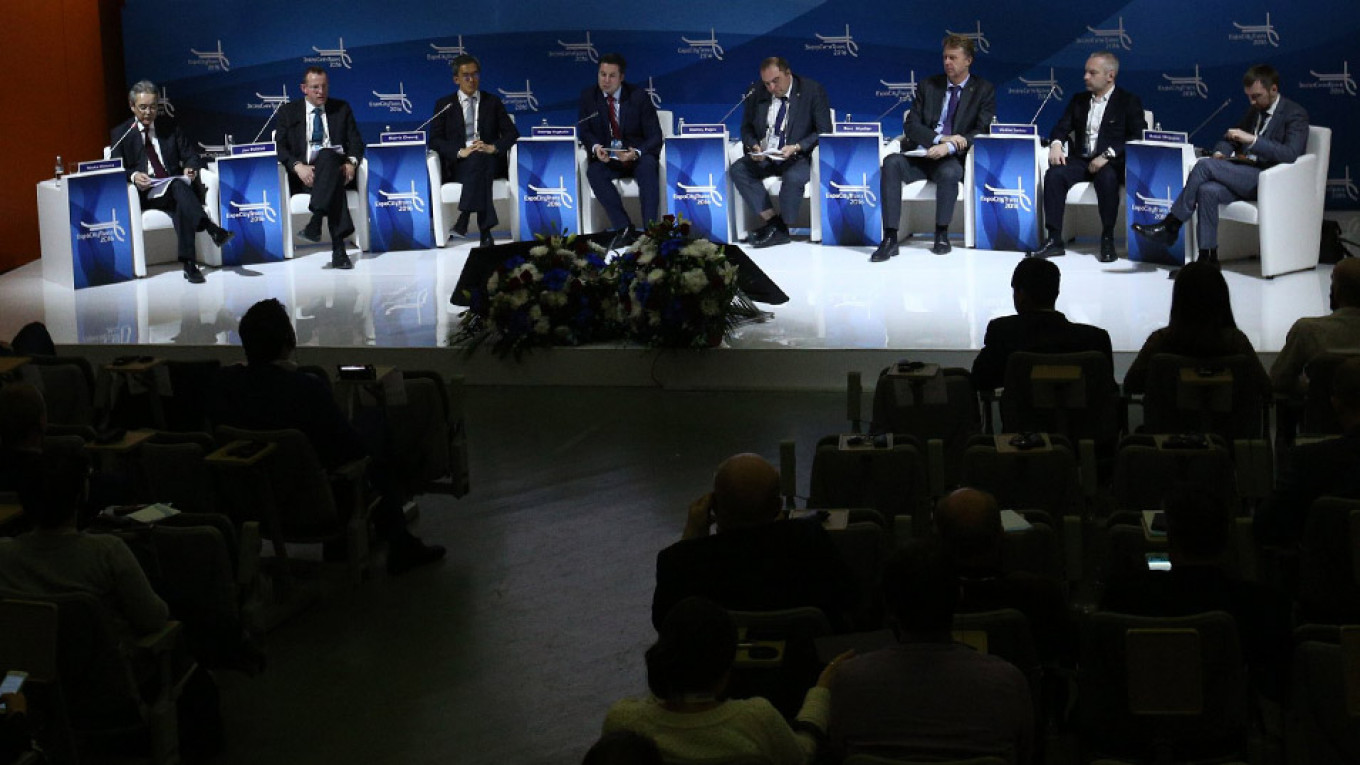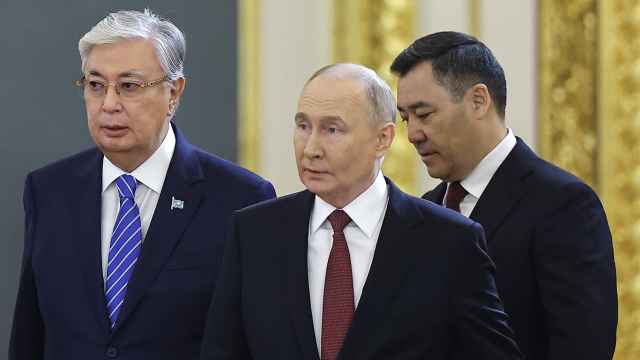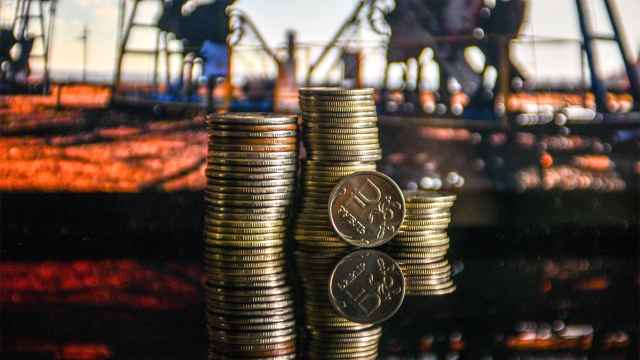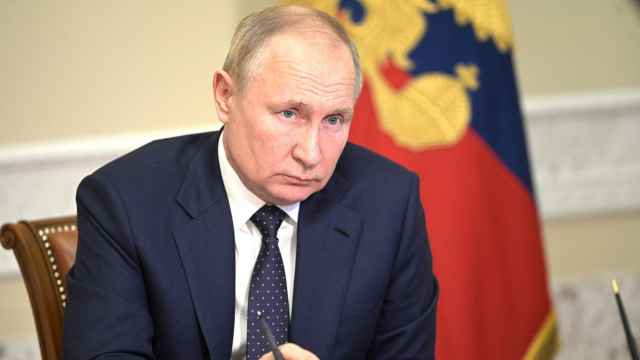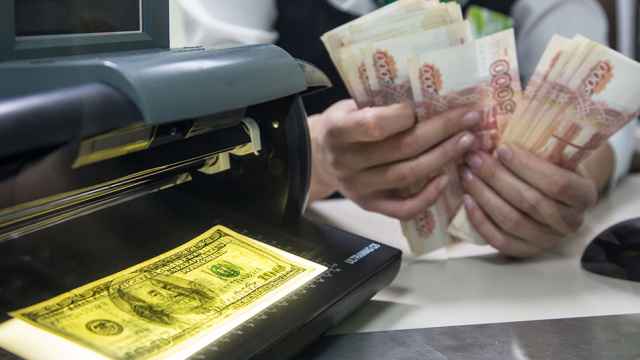Foreign direct investment (FDI) into Russia continues to decline; at the end of last year it fell threefold to its lowest level in the last decade. The net outflow of foreign investment was the highest since 2014 and amounted to $23.1 billion, according to the Central Bank of Russia (CBR).
Foreign investment should be a powerful driver of growth, and Russia needs to grow as currently growth is capped at about 2% according to experts — well below the speed of global growth. The Russian economy is stagnating and is now starting to slowly fall behind the rest of the world.
Russian President Vladimir Putin has specifically tasked the government with increasing the rate of growth so that it is faster than that of the rest of the world. According to official forecasts growth will reach 3.1% in 2021, but few economists are confident that target will be met.
However, if the government’s plans to implement the 12 national projects is successful, then by 2024 Russia should be in the top five economies in Europe and growing faster than the global average. But is this goal possible to achieve without foreign investment?
“I first came to Russia in 1966 and I was pessimistic about Russia for 46 years. Now I’m an optimist,” well known fund manager Jim Rogers told a round table of investors organised by the Russian paper Vedomosti on Aug. 28 in central Moscow. “I like Russia because it has lots of bears — everyone else hates it, which is usually a good sign for investors. It is a country with every resource known to man and it is very cheap. That is a winning combination.”
Rogers argued that the sanctions imposed on Russia in 2014 have led to some great opportunities, especially in agriculture.
“Russian farmers are blessing Trump's name every day as they have to do well as a result of the sanctions,” Rogers told the participants. “I have investments. I am buying Russian stocks as we speak today. Russia is probably one of the best places to invest. We are probably going to have tough times in the world. Citi says there is a 66% chance of a global recession in the coming years, but when that happens Russia will be least affected. Partly because the prices have already gone down and partly because of the restructuring that has already happened.”
Chief economist for Russia at Citibank, Ivan Tchakarov pointed out that after 2014, Russia achieved macro stability and is now stable.
“But if you ask people about the future then they say growth at most of 1-1.5% — not very exciting. But the real achievement has been to bring the breakeven price of oil for the budget down to $50-55. That is really spectacular," he added.
Tchakarov goes on to point out that over the long-term, the average price of oil has been $35, and that lower prices are normal. Moreover, while Russia has been underperforming other emerging markets recently, if you compare it with other commodity exporters then it has actually been outperforming, or at least level with its peers.
The Russian stock market has been doing very well this year and is up some 30% year-to-date. The bond market has also been very popular, with foreign investors piling into the market to take their share of outstanding Ministry of Finance OFZ treasury bills to 30%. But as the government is currently running a large 2% budget surplus and is awash with money, that is not really the type of investment Russia needs.
“The attractiveness of the portfolio investment is clear, but that is different from investing and operating a company in Russia. The bigger you are the easier it is to work, but the smaller you are the more difficult it gets,” Alexis Rodzianko, president of the American Chamber of Commerce in Russia, told participants. “You make most money when things go from terrible to just bad. Geopolitical risk just has to remain the same for portfolio investors to be happy, but that is not true for small and medium-sized enterprises (SMEs). I think the government is circling the wagons and getting ready for disaster rather than fostering growth.”
Rodzianko said the problem is that the Russian story looks very different depending on what your point of view is. The macro stability encourages bond investors, but the slow growth dissuades equity investors, even if the market is up this year, as it remains extremely cheap, according to Dmtri Sedov, the chairman of Goldman Sachs, Russia. “This is one of the cheapest markets in the world if you look at it in terms of the multiples. Investors are paying attention to this.”
Life is harder for the companies that are actually making something, but Stuart Lawson, former head of HSBC in Russia, now on the board of the European Businesses Association, said that Russia’s negative image masks the attractive nature of the market.
“Two types foreign investors: there are the guys that are here and the guys thinking of coming,” says Lawson, who has been working in Russia for about two decades. “If you are here then you reinvest everything you make into growing your business. If you are overseas and looking at Russia then there is a reluctance to even come and look at the market. So what determines the offshore view? The media to a large extent set the image. The foreign media do a real job on Russia. If there is a demo on Tverskaya then that is a front page story and it's what the board of directors see.”
Russia remains a difficult place to work, and Lawson and other participants in the Vedomosti round table said the operating environment is tough, especially for smaller companies. But because of the size of the market, and also thanks to the higher barriers to entry, it is also a very profitable market.
“The big companies are investing for the long-term,” said Lawson. “The automotive producers have increased their investment on the basis of special investment deals with the government. But those contracts run over a five to seven year time period. They are looking at the long-term horizon. To make that work the government needs a predictable set of values to encourage long-term horizon investment. The climate has to be predictable.”
And there is a rub. The long-term horizon predictability took a big hit with the arrest of U.S. fund manager and founder of Baring Vostok Capital Partners (BVCP) Michael Calvey on Valentine’s Day this year. Calvey got caught up in a corporate dispute with his co-investors in Orient Express Bank (OEB, aka Vostochny Bank).
“That was purely an economic dispute that should have been settled in the arbitration courts. It was not a criminal affair and the use of the criminal courts was deliberate,” says ombudsman for business Boris Titov, who has been actively lobbying for Calvey’s release.
Calvey has been released to house arrest and his colleague, Frenchman Philippe Delpal, was also released from pre-trial detention on August 15, just before Putin travelled to France to meet French President Emmanuel Macron.
The Calvey affair was a heavy blow to Russia’s investment image. Rodzianko says that U.S. companies that were already in Russia didn't leave, but they have paused investment plans to see how the story pans out. Fund managers in Moscow tell a similar story, saying that fundraising has been suspended thanks to the uncertainties the arrest has raised. For its part, BVCP says it is not pulling out of Russia and will continue to invest, but it is working to get its staff out of jail.
“The case doesn't just involve Calvey as six people were arrested. Calvey, Delpal and four more Russian colleagues,” says Elena Ivashentseva, a senor partner at BVCP. “It is unacceptable to use criminal law in a corporate dispute. We are grateful to Boris Titov for his support and that Michael was released to house arrest, but there are still four of our Russian colleagues in jail.”
Ivashentseva said that BVCP is not pulling out of Russia and continues to invest.
“The market is only 30 years old. It has only been a bit less than 30 years since the mechanisms of the market economy started to develop,” says Ivashentseva. “Investors don't fully understand the potential of the market. You have been talking about the slow pace of economic growth but the kind of companies we invest into — the fintech, IT, telecom, banking and retail companies — are all growing at 30% a year or more. They can double revenue in a year. Yet the SMEs make up only 25% of GDP. In the west it's more like 50-60%. We are staying in Russia. We have $3bn in assets under management. We will continue to invest.”
This article first appeared in bne IntelliNews.
A Message from The Moscow Times:
Dear readers,
We are facing unprecedented challenges. Russia's Prosecutor General's Office has designated The Moscow Times as an "undesirable" organization, criminalizing our work and putting our staff at risk of prosecution. This follows our earlier unjust labeling as a "foreign agent."
These actions are direct attempts to silence independent journalism in Russia. The authorities claim our work "discredits the decisions of the Russian leadership." We see things differently: we strive to provide accurate, unbiased reporting on Russia.
We, the journalists of The Moscow Times, refuse to be silenced. But to continue our work, we need your help.
Your support, no matter how small, makes a world of difference. If you can, please support us monthly starting from just $2. It's quick to set up, and every contribution makes a significant impact.
By supporting The Moscow Times, you're defending open, independent journalism in the face of repression. Thank you for standing with us.
Remind me later.



